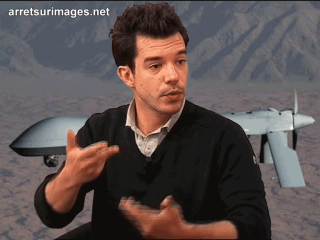Greetings readers, followers and casual viewers,
This site will now be moving as will all matters relating to my research, blogging, etc. to the following url: http://www.biometricstate.com
Look forward to seeing and hearing you there!
Best
Ben
Greetings readers, followers and casual viewers,
This site will now be moving as will all matters relating to my research, blogging, etc. to the following url: http://www.biometricstate.com
Look forward to seeing and hearing you there!
Best
Ben
Loads of useful stuff here – well worth a read for academics of all ages!
A distinguishing feature of a research career—particularly in academia—is the unstructured nature of the job. Graduate students, research scientists, professors, and postdocs are generally masters of their own time. Although this autonomy can be liberating, it can also result in tremendous inefficiency if one does not develop effective time-management tactics. There are countless books on time management, and it is impossible to provide a comprehensive compendium of time-management tactics in a single post. Hence, what I aim to do in this post is identify specific time management tactics that may be useful for academics (or anyone who works in an unstructured environment). The tactics I have compiled below are the result of much reading on this topic over many years, as well as empirically determining what works for me. Some of these tips are adapted from other readings, but most are simply tactics I’ve devised that seem to work…
View original post 3,629 more words
Here’s something well worth a look and a laugh from the Sunday edition of the NYT Magazine:

1. Peer workshops
2. Johnny Manziel
3. Brown
4. “That was during my lesbian phase.”
5. Ikea
6. Chopped salads
7. People who describe “The Wire” as “like a novel.”
8. Mike’s Hard Lemonade
9. “I just love Ann Arbor in the summer . . . so chill.”
10. Jim Belushi posters
11. “Teleological”
12. “Meta”
13. Ben Harper
14. Arcade Fire
15. Core curriculums
16. Twerking
17. The fourth meal
18. Cartilage piercing
19. Blue Moon
20. Boston
Additional reporting by Ashley Parker and Annie Lowrey
http://www.nytimes.com/interactive/2013/09/01/magazine/01-one-page-magazine.html
Fascinating stuff here – Grad students are lucky to have the opportunity to take a course covering these themes and materials.
 I’m still putting together the programme for my graduate course this term (I’ll post the full outline under the TEACHING tab as soon as it’s ready), and I plan to spend some time on what I’m calling Militarized vision and imag(in)ing modern war.
I’m still putting together the programme for my graduate course this term (I’ll post the full outline under the TEACHING tab as soon as it’s ready), and I plan to spend some time on what I’m calling Militarized vision and imag(in)ing modern war.
Images have become increasingly important to the conduct of war; in Precarious LifeJudith Butlerargues that ‘there is no way to separate, under present historical conditions, the material reality of war from those representational regimes through which it operates and which rationalize its own operation.’ This requires us to think carefully about two, closely related issues – media representations of military violence and its effects, and the ways in which militaries have incorporated political technologies of vision into their operations.
I’m thinking of beginning with these two readings:
Bernd Hüppauf, ‘Experiences of modern warfare and the crisis of representation’, New German Critique 59 (1993)…
View original post 364 more words
The Adverb is Not Your Friend: Stephen King on Simplicity of Style
As the University term begins, these tidbits about writing deserve attention! Adverbs and adjectives together help pave the road to hell for many a student term paper.
Fitting tribute to a great political thinker who’s work was also inspiration for me early in my studies.
A short version of a tribute to Jean Bethke Elshtain, who died last Sunday, from Christine Sylvester, Professor of Political Science at the University of Connecticut.
She was embraced by feminists for her books on Women and War and Public Man/Private Woman, and then ostracised by the sisterhood for her disapproval of gay marriage and approval of “just” wars in Afghanistan and Iraq. She would become anathema to peace researchers and sandpaper to scholars of critical IR. Those who liked her early writings in a secular vein would be disappointed when she began to argue from a base in religious philosophies. Jean Bethke Elshtain encapsulated the best hopes of feminists to effect change in core topics of “men’s studies” –International Relations and Religious Studies –and ended up instead on the wrong side of several issues. That’s clear. So let’s ignore her recent death, shall we? Possibly celebrate her…
View original post 1,071 more words
Digital Technologies and Border Control in West Africa
Great contribution on criticalsecurity.ca about technology and border control in Africa by Philippe M. Frowd.
Excellent post on Drones together with some discussion of Joseph Pugliese’s outstanding new book.
This is the third in a series of posts on Grégoire Chamayou‘s Théorie du drone, in which I provide a detailed summary of his argument, links to some of his key sources, and reflections drawn from my soon-to-be-completed The everywhere war (and I promise to return to it as soon as I’ve finished this marathon).
5: Pattern of life analysis
Chamayou begins with the so-called ‘Terror Tuesdays‘ when President Obama regularly approves the ‘kill list’ (or disposition matrix) that authorises ‘personality strikes’ against named individuals: ‘the drones take care of the rest’.
But Chamayou immediately acknowledges that most strikes are ‘signature strikes‘ against individuals whose names are unknown but for whom a ‘pattern of life analysis‘ has supposedly detected persistent anomalies in normal rhythms of activity, which are read as signs (‘signatures’) of imminent threat. I’ve described this as a militarized rhthmanalysis…
View original post 2,470 more words
Nice to see the critical engagement and analysis of drones steadily become richer. Here’s another via geographical imaginations
 This is the first of a series of posts as I work my way through Grégoire Chamayou‘s Théorie du drone (2013), which has finally arrived on my desk. I’ve loosely summarised the project and its relation to Chamayou’s previous work before, and in these notes I’ll combine a summary of his argument with some extended readings and excerpts from his sources and some comments of my own. I hope readers will find these useful; they are an aide-memoire for me, and a way of working out some of my own ideas too, but do let me know if all this is helpful (especially for those with no French).
This is the first of a series of posts as I work my way through Grégoire Chamayou‘s Théorie du drone (2013), which has finally arrived on my desk. I’ve loosely summarised the project and its relation to Chamayou’s previous work before, and in these notes I’ll combine a summary of his argument with some extended readings and excerpts from his sources and some comments of my own. I hope readers will find these useful; they are an aide-memoire for me, and a way of working out some of my own ideas too, but do let me know if all this is helpful (especially for those with no French).
I’m pleased to say that he draws on several of my essays about drone warfare, including ‘From a view to a kill’, ‘Lines of descent’, and even ‘The everywhere war’ (all available under the DOWNLOADS tab), so I won’t re-trace…
View original post 1,670 more words